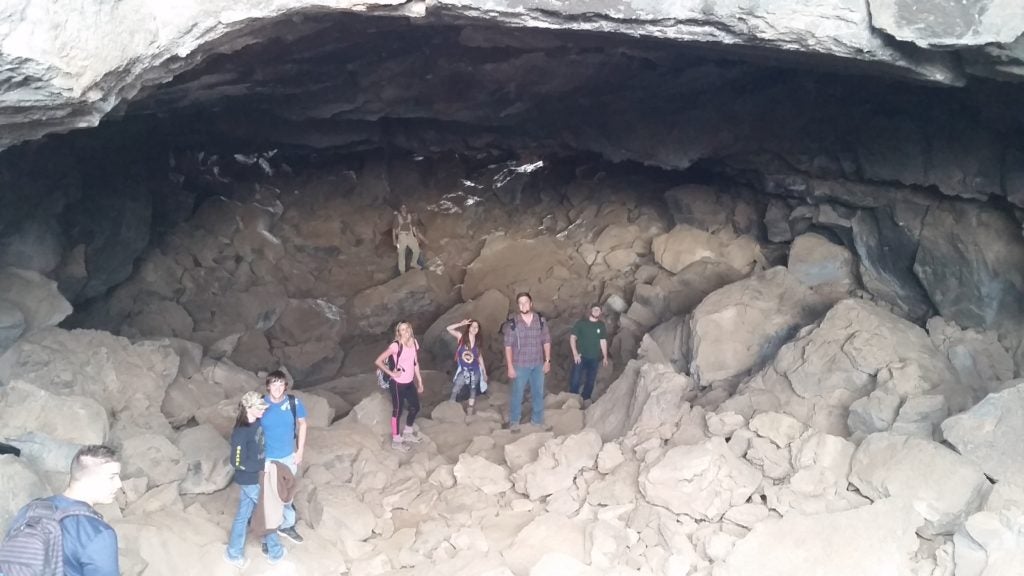
Geoscientists study the physical, chemical, and biological processes of the Earth, from its deep interior to its surface. While most people only know geology in relation to oil and gas, Geoscience majors also study topics such as fossils, rivers, beaches, volcanoes, glaciers, earthquakes, plate tectonics, groundwater, global climate change, soils, and sediments, to name a few.
Using a wide variety of tools and techniques, Tarleton State University Geoscience students learn how geoscientists investigate environmental hazards (such as earthquakes, landslides, floods, hurricanes, beach erosion, volcanic eruptions, water pollution, and toxic chemical spills); the availability of mineral, energy, and water resources; and the history of the Earth and its inhabitants.
The Geoscience undergraduate program at Tarleton State University offers one degree with seven distinct concentration areas. All under the larger heading of Geoscience, these concentrations include:
- Geology
- Environmental Science
- Petroleum Geology
- Hydrogeology
- Science Teaching (certifying student to teach all high school sciences )
- Earth Science
The Geosciences program at Tarleton offers the benefits of small classes and individual attention coupled with rigorous courses and industry experience. Our field and laboratory classes offer hands-on learning in classic geological topics ranging from paleontology, sedimentology and stratigraphy, mineralogy, structure, and more. Our different degree options allow for specialized courses unique to our programs, which cater to the individual student needs and career options, including Well Log Analysis, Petroleum Geology, Paleoecology, Remote Sensing, Hydrogeology, and Environmental Science, among others. In addition to our classroom experiences, advanced undergraduates have the opportunity to better hone their skills and earn valuable experience as lab assistants, science clinic tutors, or student researchers. The Geoscience Program is housed in the state-of-the-art Lamar Johanson Science Building. Faculty engage in a variety of research activities including such areas as mineral chemistry, economic geology, paleontology, sedimentology, paleoecology, petroleum geology, structural geology and kinematics.
The campus is located in an area with extensive and visible geology. In the surrounding region students have access to a wide variety of geologic situations including the Arbuckle Mountains in Oklahoma, Chisos and Davis Mountains in West Texas, the Llano uplift, the caves and the springs of the Hill Country in central Texas, and the sediments of the coastal plain.